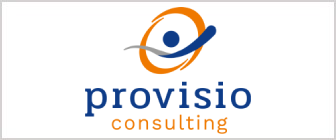Indonesia PMK 15/2025 is an important regulation which describes the country's approach to tax audit. The PMK means "Peraturan Menteri Keuangan", which results in the Minister of Finance. This new regulation is important because it brings changes that aim to improve the efficiency of tax audits in Indonesia.
One of the key aspects of PMK 15/2025 is its clear definition of the scope of tax audits. The regulations specify which taxpayers and industries will be subject to audits. This helps taxpayers to understand if they can be verified according to their activities or their financial situation. In addition, the regulations set the objectives of tax audit, focusing on the increase in the conformity of taxpayers. The objective is not only to collect more taxes but also to build a better relationship between the government and the taxpayers. By having clear directives, the two parties can better understand their responsibilities and their rights.
Another significant change introduced by PMK 15/2025 is procedural adjustments in the way audits are made. The regulations provide more detailed steps for audit processes, ensuring transparency and equity. This means that taxpayers will have a clearer understanding of what to expect during an audit process. For example, the regulations describe deadlines for audits, notification processes and taxpayers' rights during the audit. Such changes aim to make the audit process simpler and less intimidating for taxpayers.
The PMK 15/2025 is aligned with the broader reforms of the tax policy of Indonesia. The government has worked hard to improve tax compliance and increase income. These regulations are part of a greater effort to modernize the tax system in Indonesia. By introducing clear and structured audit procedures, the government aims to encourage more taxpayers to declare their income with precision. The increase in fiscal compliance is vital for the government to finance public services and the development of infrastructure.
The regulations also reflect a change to a more cooperative approach to tax compliance. Instead of focusing only on penalties for those who escape taxes, PMK 15/2025 encourages voluntary compliance. It aims to create an environment where taxpayers are ready to comply with their obligations and to engage positively with the tax authorities. By promoting a culture of compliance, the government hopes to improve global confidence between taxpayers and tax administrators.
Understanding the PMK 15/2025 is essential for all taxpayers in Indonesia. It helps them prepare for potential audits and take measures to comply with new requirements. For companies, this regulation means that they must maintain specific recordings and be aware of what an audit may involve. Strategic financial planning will not only respect the current tax obligations, but also to remain informed of these regulations to mitigate risks during audits.
Overall, PMK 15/2025 is a crucial step in Indonesia's journey to a more transparent and efficient tax system. By clearly defining the audit procedures, the stakes and the objectives, the regulations will help taxpayers and the government to work together in a productive manner., The implementation of PMK 15/2025 brings significant changes that could affect both people and companies in Indonesia. One of the key implications is the increase in scrutiny during tax audits. With this new regulation, the fiscal authorities apply the strictest controls of the records and financial statements are likely. This means that taxpayers must be prepared for the tax audit which is strict of their financial activities.
For people and companies, the maintenance of precise records becomes more crucial than ever. Each receipt, invoice and financial document must be organized and easy to access. Bad documentation can lead to misunderstandings during audits and can cause additional sanctions or taxes due. Therefore, maintaining complete and precise records is essential for compliance with PMK 15/2025.
To navigate the complexities of this new regulation, taxpayers should also consider strategic compliance strategies. An effective approach is to perform internal audits regularly. When reviewing the financial statements and records in advance, people and companies can identify any discrepancy or area that may require improvements. This proactive measure can help mitigate risks and prevent problems during official audits.
Another strategy to stay fulfilling is to invest in training for accounting and finance personnel. Ensure that those responsible for administering finance comprise new regulations and compliance requirements can lead to better adhesion to PMK 15/2025. In addition, consulting with tax professionals who are familiar with the latest tax laws can provide valuable information and help maintain compliance.
Understanding the implications of PMK 15/2025 is also vital for strategic financial planning. Taxpayers should consider the budget for possible audit costs. This may include the hiring of external consultants, additional accounting personnel or software acquisition to improve financial information processes. The budget for these possible expenses can help companies manage their finances more effectively.
In addition, maintaining transparency in financial reports is essential under the new fiscal audit regulation. Taxpayers must be clear and direct about their financial transactions. This not only helps generate trust with tax authorities, but also reduces the possibilities of facing sanctions due to perceived erroneous interpretation. By prioritizing transparency, people and companies can build better relations with tax officials.
Appropriate knowledge and preparation can place taxpayers to effectively adapt to changes presented by PMK 15/2025. By recognizing the importance of maintaining precise records, improving compliance measures and strategically planning for financial implications, people and companies can more successfully navigate this new fiscal landscape. This will contribute not only to fiscal compliance but also to promote long -term general financial health.

